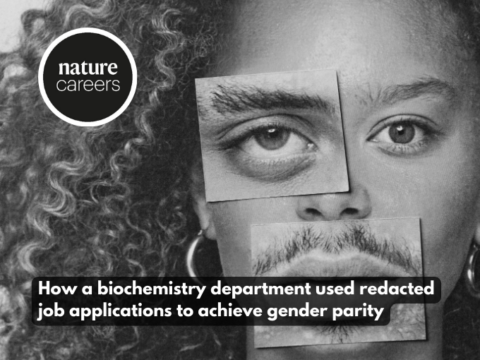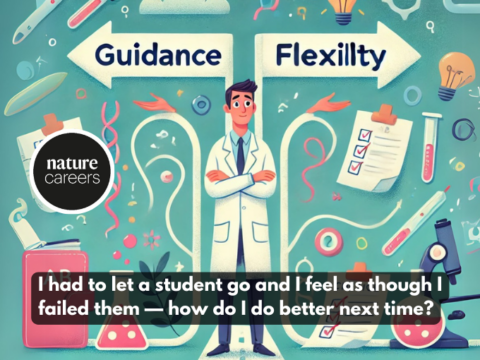 Scientific conferences can inspire researchers to take new directions in their work and help them to meet new employers and collaborators. The opportunities on offer are not, however, equally open to all. For scientists who are members of under-represented groups, conferences can be unwelcoming environments, where they are repeatedly interrupted, face hostile questioning, receive comments on their appearance, are excluded from leadership roles and worse because of their gender, skin colour or other aspects of their identity.
Scientific conferences can inspire researchers to take new directions in their work and help them to meet new employers and collaborators. The opportunities on offer are not, however, equally open to all. For scientists who are members of under-represented groups, conferences can be unwelcoming environments, where they are repeatedly interrupted, face hostile questioning, receive comments on their appearance, are excluded from leadership roles and worse because of their gender, skin colour or other aspects of their identity.
Nature speaks to four scientists about their experiences as members of under-represented groups at conferences — and how researchers can protect themselves and others from inappropriate behaviour, abuse and harassment.
PAS GARCIA MARTINEZ: When you’re in the minority, you feel different
Optics researcher at the University of Valencia in Spain and general secretary of the Spanish Association of Female Researchers and Technologists.
In my university department, of 15 people who teach optical physics, I’m the only woman. At the conferences I go to, about 20–25% of the attendees are women. Being in a minority can feel isolating because you feel different. It’s about not having a sense of belonging and the unspoken codes of conduct at meetings.
You can see it in the way women ask questions differently from men; women often queue and wait for their turn, rather than pushing themselves forward. Speakers are mostly men, and female speakers are questioned more, or less respectfully.
I have experienced ‘mansplaining’ — when a man explains something to me in a patronizing way — at meetings many times. I’ve also been at meetings where I’ve described something, and then a man stands up and says the same thing in different words. I have suffered inappropriate jokes or comments about my physical appearance, such as my legs if I wear a skirt, or about my clothes. I like my male colleagues and have learnt a lot from them, but they can be competitive and sometimes speak in a way that is not welcoming to women.
Being in the minority at conferences is worse than in other professional situations because they are so important. As a researcher, you need to know what others in your field are doing, find out about interesting projects and be part of networks.
Event organizers can improve the situation. At some meetings, there are women-only sessions or lunches at which we can share experiences and provide support to each other. Younger women have told me that they don’t know how to respond when a man says something inappropriate, and women-only spaces are a good place to discuss such issues.
Travel can be a barrier for women because we tend to have more caring and family responsibilities. Grants and provisions for childcare can help. Many conferences became virtual as a result of the COVID-19 pandemic. That meant I could go to four international meetings per year, instead of just one. All meetings should have a virtual option to help women and other under-represented groups to attend.
Another way forward is requiring people to agree to codes of conduct that exclude all forms of harassment and discrimination when they register for meetings.
Sometimes we hear event-panel organizers say there are no women working in a particular area. Often, it is just that women have been excluded from the relevant networks. At the Association of Female Researchers and Technologists, which campaigns for equality for women in research, science and technology in Spain, we provide a database of more than 3,800 female researchers to increase women’s visibility to conference organizers and journalists.
I have been a working scientist for more than 20 years, and I’ve learnt that I must not be shy about putting myself forward when I want to do or say something. If need be, I speak louder to be heard. Women at earlier career stages should look to the other women at the meeting. If you experience any harassment or other bad conduct, tell organizers or other senior people. Be brave, don’t be afraid to ask questions and speak up.
Read the full article on the Nature Careers Website

 Print This Post
Print This Post





